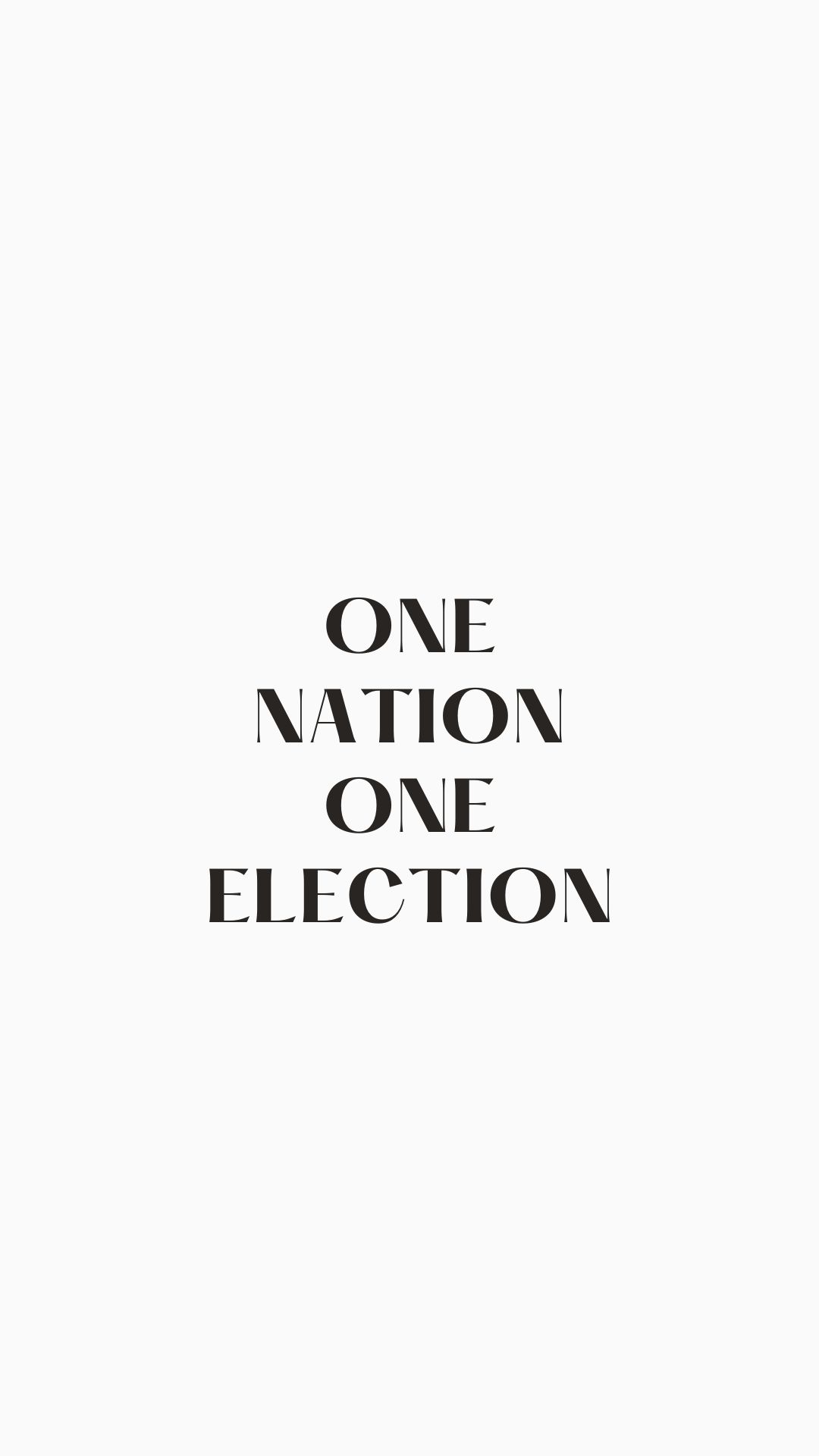The concept of “One Nation, One Election” aims to synchronize the electoral cycle for all tiers of governance in India, including parliamentary, state assembly, and local body elections. Here are some key points to consider:
- What is “One Nation, One Election”?
- It refers to holding elections to the Lok Sabha, all state Legislative Assemblies, and urban and rural local bodies (municipalities and panchayats) simultaneously.
- Currently, these elections are held independently, following timelines dictated by the terms of each elected body.
- Historical Context:
- Simultaneous elections were held in seven states (Bihar, Bombay, Madras, Mysore, Punjab, Uttar Pradesh, and West Bengal) in 1957.
- However, subsequent disruptions due to constitutional provisions and coalition governments led to elections being held at different times throughout the year.
- Arguments in Favor:
- Streamlining the Process: Holding simultaneous elections can reduce the frequency of elections, allowing governments to focus on governance rather than campaigning.
- Cost Efficiency: Conducting elections together can save costs associated with multiple election cycles.
- Increased Voter Turnout: Simultaneous elections may encourage more voters to participate.
- Policy Continuity: Stable governments can implement long-term policies without frequent interruptions.
- Challenges and Criticisms:
- Practical Implementation: Coordinating elections across diverse states and levels of government is complex.
- Political Dynamics: Elections often reflect local issues, and simultaneous polls may dilute this focus.
- Constitutional Amendments: Changes would be needed to align terms of various elected bodies.
- Federalism Concerns: States’ autonomy and regional diversity must be considered.
In summary, the idea of “One Nation, One Election” has both advantages and challenges. It’s essential to weigh these factors carefully and engage in informed discussions to determine whether we should support it

